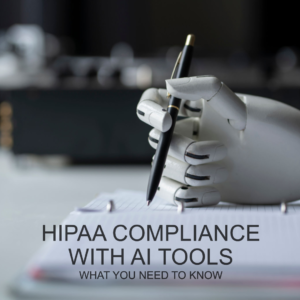ChatGPT
 Artificial Intelligence in Healthcare
July 7, 2023
AI, or Artificial Intelligence, refers to the field of computer science that focuses on creating intelligent machines capable of performing…
Artificial Intelligence in Healthcare
July 7, 2023
AI, or Artificial Intelligence, refers to the field of computer science that focuses on creating intelligent machines capable of performing…
 How to use ChatGPT ensuring HIPAA compliance
May 8, 2023
AI language models like ChatGPT can improve patient care and streamline workflows in healthcare. But how can healthcare providers use…
How to use ChatGPT ensuring HIPAA compliance
May 8, 2023
AI language models like ChatGPT can improve patient care and streamline workflows in healthcare. But how can healthcare providers use…